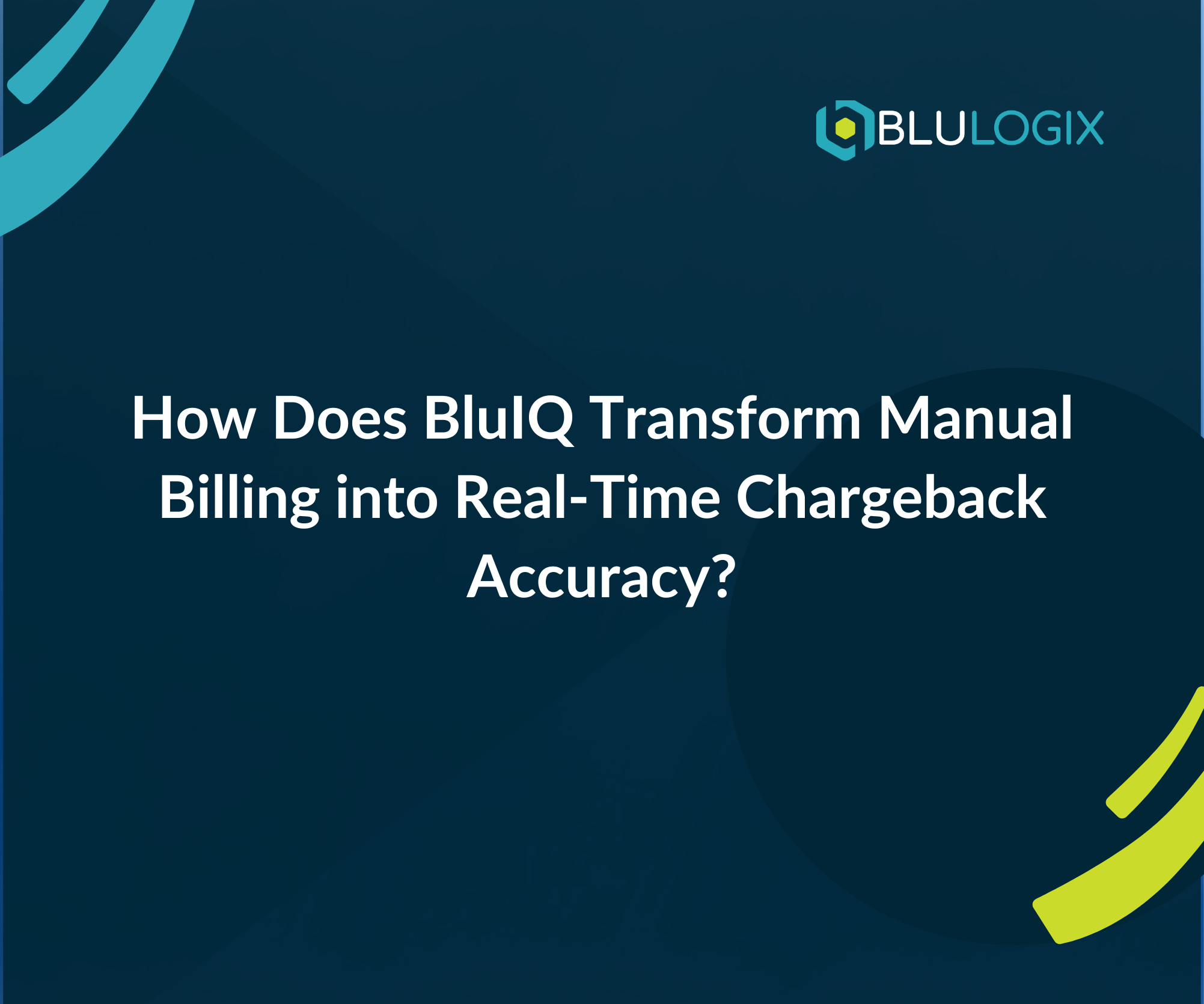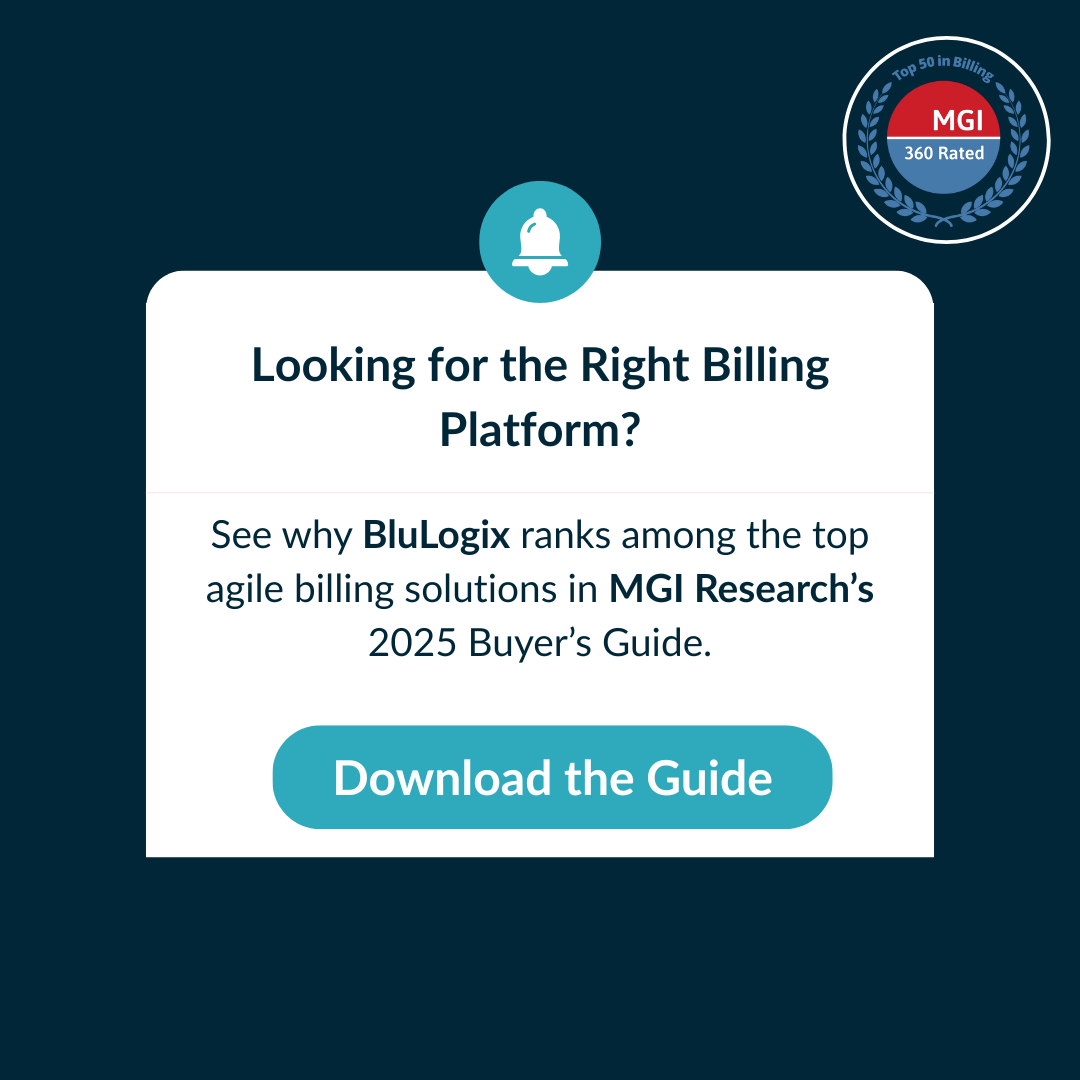Navigating Tax and Regulatory Complexities in UCaaS Billing
Summary: Managing tax and regulatory compliance is a complex challenge for UCaaS providers, especially as they introduce bundled offerings, hybrid price models, and serve diverse geographies. For UCaaS companies, key strategies include automating tax calculations, ensuring geo-specific compliance, streamlining regulatory reporting, and maintaining transparency. By adopting these strategies, UCaaS providers can reduce administrative burden, minimize compliance risks, and scale their offerings confidently.
Ready to see how BluIQ can transform your billing process and help you achieve integrated, automated, and accurate complex monetization? Schedule a demo with a BluLogix billing expert today and take the first step towards revolutionizing your revenue management.
Navigating Tax and Regulatory Complexities in UCaaS Billing
As UCaaS companies grow and diversify their service offerings, many are shifting towards complex bundles, hybrid pricing plans, and varied subscription models. While these pricing approaches offer greater value and customization for customers, they also bring a range of tax and regulatory challenges. In this post, we discuss the common tax and regulatory hurdles faced by UCaaS providers and explore strategies to navigate this intricate landscape effectively.
The Tax and Regulatory Challenges in UCaaS
In the UCaaS space, tax compliance and regulatory requirements are anything but straightforward. The complexity stems from various factors:
- Bundled Offerings: Bundling multiple services (e.g., voice, video, messaging) into a single package makes determining the correct tax treatment challenging. Each component may be subject to different tax rates or rules.
- Diverse Geographies: UCaaS companies often serve customers across multiple states or countries, each with its own telecom tax laws, VAT, sales tax requirements, and regulatory obligations.
- Dynamic Pricing Models: The use of consumption-based pricing, hybrid subscriptions, and discounts makes accurately calculating taxes even more complex. Each model may require different tax treatments based on the nature of the service and the customer location.
- Constant Regulatory Changes: Telecom tax regulations are frequently updated, and UCaaS providers must ensure that they remain compliant, even as rules evolve across different jurisdictions.
Navigating Tax and Regulatory Compliance in UCaaS
Addressing tax and regulatory complexities requires a proactive approach, combining automation, strategic planning, and specialized expertise. Here are some ways UCaaS providers can manage these challenges:
- Automate Tax Calculations
To tackle the complexity of telecom taxation, UCaaS companies should integrate tax engines that can automatically apply the correct tax rates based on the services offered, customer location, and pricing model. Bundled packages, hybrid subscriptions, and consumption-based pricing all require sophisticated tax rules, and automation ensures that these rules are consistently applied, minimizing manual errors.
- Bundled Taxation Logic: Leveraging tax automation helps correctly allocate taxes across bundled services, applying appropriate rates for each component without creating administrative overhead.
- Dynamic Tax Rules for Flexible Pricing: Implementing dynamic tax systems enables automatic adjustments based on real-time changes in usage or service plans, ensuring that tax calculations reflect the evolving customer relationship.
- Ensure Geo-Specific Compliance
For UCaaS providers serving customers in multiple regions, keeping up with the tax and regulatory requirements of each location is critical. Providers must ensure that their systems can apply the correct regional tax rules, such as VAT, sales tax, or telecom-specific regulations.
- Multi-Jurisdiction Support: Automating multi-jurisdiction compliance can help apply the correct tax rates based on where services are being delivered. This is particularly important for UCaaS providers with a global presence, where each jurisdiction may have unique tax codes and requirements.
- Localization Capabilities: Compliance processes need to reflect local regulatory requirements. Ensuring systems are localized can reduce the risk of compliance issues and provide greater accuracy for regional operations.
- Streamline Reporting & Regulatory Adherence
Telecom and UCaaS services are subject to various regulatory reporting requirements. Streamlining this process is essential for reducing administrative burden and minimizing errors.
- Automated Regulatory Reporting: Automation tools can generate reports tailored to the requirements of local regulatory bodies. This reduces manual effort, ensures that reporting is timely, and minimizes the risk of inaccuracies that could lead to penalties.
- Real-Time Compliance Updates: Keeping track of changes in tax laws and regulations is a continuous effort. Real-time compliance updates can ensure that your systems adapt to evolving requirements, keeping taxation consistent and up to date.
- Maintain Audit-Ready Transparency
Maintaining transparency into how taxes and fees are calculated is crucial for both regulatory audits and customer trust. UCaaS providers must have accurate record-keeping mechanisms in place, ensuring every transaction can be traced, verified, and explained.
- Detailed Tax Breakdowns: Providing detailed breakdowns of applicable taxes on invoices fosters trust with customers and simplifies the audit process.
- Accurate Record Keeping: Comprehensive records ensure that audits are smooth, regulatory inquiries are addressed quickly, and financial compliance is maintained.
Strategies for UCaaS Providers to Succeed in Tax and Regulatory Compliance
Tax compliance and regulatory adherence are more than administrative hurdles—they are essential components of financial health and business integrity. Here are the key takeaways for UCaaS providers navigating this complex landscape:
- Reduce Administrative Overhead: Automating tax calculations and regulatory reporting frees up valuable time for finance teams, enabling them to focus on strategic tasks that drive business growth.
- Minimize Risk of Non-Compliance: Staying up to date with evolving tax regulations helps UCaaS providers reduce the risk of penalties and ensure that they remain compliant across jurisdictions.
- Enhance Customer Trust: Providing transparent invoices that clearly outline applicable taxes minimizes disputes and enhances customer trust, which is especially important in multi-tier service packages.
- Scale Confidently: By investing in automated compliance tools, UCaaS providers can expand their geographic reach and service offerings without worrying about the increased complexity of tax and regulatory requirements.
Navigating the world of telecom taxation and regulatory compliance requires a strategic approach. With the right systems, automation tools, and expertise in place, UCaaS providers can manage these complexities efficiently, ensure compliance, and focus on expanding their service offerings without unnecessary roadblocks. Ensuring tax compliance and regulatory adherence isn’t just about following the rules—it’s about building a scalable, trustworthy business model that supports long-term growth.
Ready to see how BluIQ can transform your billing process and help you achieve integrated, automated, and accurate complex monetization? Schedule a demo with a BluLogix billing expert today and take the first step towards revolutionizing your revenue management.
Learn more

How AI and Predictive Analytics Are Transforming Revenue Processes for Finance Teams

How Can Public Sector Organizations Turn Chargeback into Strategic Cost Recovery?



